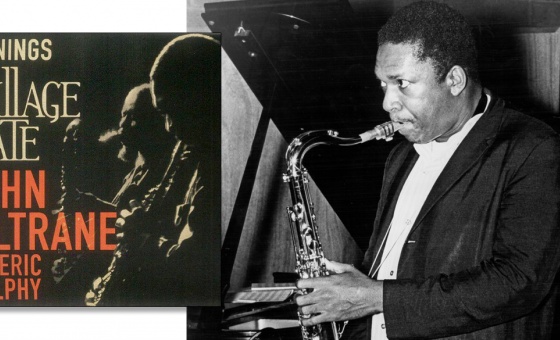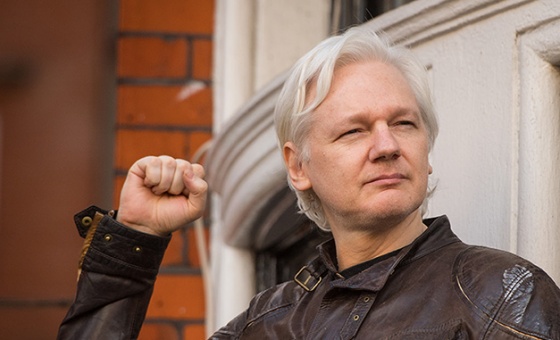This is the last article you can read this month
You can read more article this month
You can read more articles this month
Sorry your limit is up for this month
Reset on:
Please help support the Morning Star by subscribing here
AS WE approach the seventh anniversary of the beginning of Saudi Arabia’s ongoing military intervention and blockade in Yemen, the horror continues.
By the end of 2021 the UN Development Programme estimated 377,000 people had been killed in Yemen, either directly through violence or indirectly through hunger and disease. This follows 2018 analysis from Save the Children that estimated “85,000 children under five may have died from extreme hunger since the war in Yemen escalated” in March 2015 with the Saudi involvement.
More broadly, in September 2021 the UN World Food Programme warned that 16 million Yemenis — over half the population — were “marching toward starvation.” And in 2018 Mark Lowcock, the UN under-secretary general for humanitarian affairs and emergency relief co-ordinator, said Yemen was dealing with “what most people think is the biggest epidemic of cholera outbreak the world has seen.”
Unsurprisingly, the UN calls Yemen “the largest humanitarian crisis in the world.”
According to Saudi Arabia, their intervention started in support of Yemeni President Abed Rabbo Mansour Hadi, who had been overthrown by Houthi rebels. Working with a coalition of Middle East states (including Egypt, the UAE and Kuwait) and backed by the US and Britain, Saudi Arabia has been bombing and blockading Yemen, long known as the poorest country in the Middle East.
Speaking to the Guardian’s Owen Jones, Sam Perlo-Freeman from the Campaign Against Arms Trade (CAAT) noted, “The Saudis are maintaining [the blockade] without suffering any consequences or diplomatic efforts. The attention given by the world’s powers to end the war or at the least the humanitarian crisis in Yemen is woefully inadequate to nonexistent.”
This is especially pertinent to Britain’s role in the conflict, as Britain is the “penholder” on Yemen at the UN security council. “That means that Britain has the power to draft and table security council products on Yemen — including press statements, resolutions and presidential statements and more,” Save the Children explains. “It means they have the power to lead the way in efforts to forge a political, not military, solution to the conflict.”
But Britain’s role in Yemen goes far beyond refusing to act to end the fighting — Britain has actively worked to shield Saudi Arabia from criticism. For example, in 2018 the Guardian noted the UN security council “failed to agree to a statement calling on forces led by Saudi Arabia and the United Arab Emirates to implement a ceasefire, with the US and UK both voicing opposition to the text introduced by Sweden.”
This is unsurprising when you consider the then foreign secretary Philip Hammond stated in March 2015 that “We’ll support the Saudis in every practical way short of engaging in combat... political support, of course, logistical and technical support.”
With Britain one of the leading arms suppliers to Saudi Arabia, in January CAAT reported “the published value of UK arms licensed for export to the Saudi-led coalition since the bombing began in March 2015 is £6.9 billion.” However, CAAT themselves estimate the real value of British arms to Saudi Arabia to be over £20 billion.
And as Hammond explains, British support goes beyond arms sales, providing personnel and technical expertise to keep the Saudi assault going. Writing in the Guardian in 2019, Arron Merat notes “around 6,300 British contractors are stationed at forward operating bases in Saudi Arabia,” where they train pilots and carry out essential maintenance on the planes.
In 2016 the Telegraph reported British (and US) military officials were working in the command and control centre for Saudi air strikes on Yemen, which included access to lists of targets. After conducting a survey of Saudi-led air strikes in Yemen, in 2016 the Yemen Data Project, a group of academics, human rights organisers and activists, noted more than one-third of air raids on Yemen had hit civilian sites, such as hospitals, schools, mosques, markets and economic infrastructure.
“The Saudi bosses absolutely depend on [arms company] BAE Systems. They couldn’t do it without us,” John Deverell, the ex-defence attache to Saudi Arabia, told Merat. Appearing in a 2019 Channel 4 Dispatches documentary a BAE employee explained “if we weren’t there, in seven to 14 days there wouldn’t be a jet in the sky.”
Moreover, it seems British troops have actually been fighting on the ground in Yemen, with the Mail on Sunday reporting in 2019 “at least five British Special Forces commandos have been wounded in gun battles as part of a top-secret UK military campaign.” According to the article “the SBS [Special Boat Service] mentoring teams inside Yemen include medics, translators and Forward Air Controllers (FACs), whose job is to request air support from the Saudis.”
Despite this deep involvement, frustratingly YouGov polls in 2017 and 2018 found a large section of Britain public was not even aware the war was happening. That luxury is not available to Yemenis.
“The 70 per cent of Yemenis living in Houthi rebel-controlled areas are well aware it is nations such as Britain that enable bombing raids on their weddings, hospitals and schoolchildren,” Bethan McKernan reported in the Guardian last year.
“Technical information and serial numbers from missile parts are easily traced to Western arms manufacturers and many families hang on to such evidence in the hope that one day, justice for their loved ones will be served.”
So far the British left, anti-war and peace movement have been unable to stop Britain’s complicity in the slaughter in Yemen. It came close in 2019, when the government was forced to temporarily suspend new arms sales to Saudi Arabia, after a legal challenge from CAAT led to the court of appeal ruling British arms sales to Saudi Arabia were unlawful.
And there have been other impressive acts of resistance, including British soldier Ahmed al-Babati courageously protesting in Whitehall against Britain’s involvement in the war and peace activist Sam Walton’s attempted citizen’s arrest of a Saudi general in London in 2017.
So what is to be done? How can the anti-war movement increase the public’s awareness and anger about Britain’s role helping to escalate the conflict and therefore exacerbate the catastrophe?
It would be unwise to expect help from Keir Starmer’s Labour Party, which obviously doesn’t see ending the destruction of Yemen as a priority. In February 2021 Declassified UK’s Matt Kennard noted the Labour leader had “tweeted the word ‘Yemen’ once in history.”
Ditto the corporate media, including much of the liberal commentariat, which has all too often mirrored the British elite’s indifference to Yemen — a point Florian Zollmann, a Senior Lecturer in Journalism at Newcastle University, made to me in 2018.
“Whilst reports and critical discussions about Saudi Arabia’s military conduct and the way civilian areas have been systematically targeted in Yemen have been published by the press, there has been no sustained campaign in the news media aimed at seriously constraining the Saudi military’s ability to use force,” Zollmann noted.
“Comparing this with reporting on Syria, where the Western news media have been constantly featuring reports that include discussions about military and other forms of intervention, the double standards could not be more obvious.”
The editor of Interventions Watch blog recently noted the journalist Paul Mason had sent just three tweets including the word “Yemen” since the start of the Saudi intervention in March 2015. Similarly, a search in early February showed senior Guardian columnist Jonathan Freedland has tweeted about Yemen five times in the same period — less than once every year of the conflict. In comparison, Mason had sent 18 tweets including the word “Russia” since the start of 2022 alone.
As is often the case, any shift in British policy on Yemen will likely come down to the size and effectiveness of grassroots activism and pressure. The British left needs to make Yemen a campaigning priority. Perhaps the war should be a central focus for Jeremy Corbyn’s Peace and Justice Project, which feels it has a huge amount of unrealised potential.
Could 2022 be the year Britain is forced to end its crucial role in enabling the world’s largest humanitarian crisis?
Follow Ian on Twitter @IanJSinclair.










